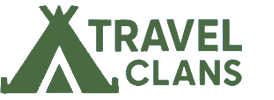Best Travel Agency CRM Systems: Top Tools for Managing Client Relationships and Boosting Sales
- 1. Understanding CRM for Travel Agencies
- 2. Key Features of CRM Systems for Travel Agencies
- 3. Top CRM Tools for Travel Agencies
- 4. How Travel Agency CRMs Boost Sales and Customer Retention
- 5. Choosing the Right CRM for Your Travel Agency
1. Understanding CRM for Travel Agencies
Customer Relationship Management (CRM) systems are vital tools for travel agencies to streamline their operations and enhance customer experiences. A CRM system helps travel agencies track interactions with clients, manage bookings, and maintain detailed profiles of each customer. By providing insights into client preferences, past bookings, and communication history, CRMs enable agencies to tailor their services and improve customer satisfaction.
For travel agencies, a good CRM system is more than just a tool for managing contacts—it’s a comprehensive solution for automating marketing campaigns, handling reservations, and tracking leads, all of which play a crucial role in increasing sales and improving overall efficiency.
2. Key Features of CRM Systems for Travel Agencies
When choosing the best CRM for your travel agency, it’s essential to understand the key features that can help optimize your business operations. Some of the most beneficial features include:
- Customer Segmentation: CRMs allow agencies to categorize clients based on their travel preferences, budgets, and past bookings. This segmentation helps create personalized marketing strategies that target the right customers with tailored offers.
- Automated Communication: CRM systems can automate emails, text messages, and notifications, ensuring timely communication with clients, from booking confirmations to special promotions.
- Booking and Reservation Management: A CRM system integrates with booking platforms, allowing agencies to manage and track client reservations in real time, avoiding double bookings and reducing errors.
- Analytics and Reporting: CRMs generate detailed reports on sales performance, customer preferences, and booking trends, helping travel agencies make data-driven decisions and improve their marketing strategies.
3. Top CRM Tools for Travel Agencies
Several CRM systems are highly rated for their ability to meet the unique needs of travel agencies. Below are some of the top CRM tools for managing travel agency client relationships:
- Salesforce for Travel Agencies: Salesforce is one of the most popular CRM solutions worldwide, offering a robust suite of features for travel agencies. It provides automated workflows, detailed analytics, and customizable options to cater to the specific needs of your agency.
- TravelWorks CRM: TravelWorks is designed specifically for the travel industry, with features like tour and booking management, client profiling, and communication tracking. It also allows integration with other travel-related tools like payment processors and itineraries.
- Zoho CRM: Zoho CRM offers a cost-effective and versatile solution for small to medium-sized travel agencies. It includes lead tracking, automated email marketing, and customer analytics, making it easy to engage with clients and streamline operations.
- HubSpot CRM: Known for its ease of use and scalability, HubSpot CRM is ideal for travel agencies looking to integrate marketing, sales, and customer service. It offers seamless integration with email marketing platforms and sales tools, helping travel agencies close deals faster.
4. How Travel Agency CRMs Boost Sales and Customer Retention
CRM systems are essential for driving sales and improving customer retention in the travel industry. By tracking client preferences and behaviors, agencies can provide personalized offers and services that increase customer satisfaction and loyalty. For example, using data from CRM systems, agencies can send tailored promotions for destinations that a client has shown interest in, boosting the chances of repeat bookings.
CRMs also help streamline the sales process by organizing leads and automating follow-ups, making it easier for agents to close deals and follow up on potential clients. With real-time data at their fingertips, travel agencies can also spot trends and respond quickly to market changes, giving them a competitive edge.
5. Choosing the Right CRM for Your Travel Agency
When selecting the best CRM system for your travel agency, it’s important to consider factors like scalability, ease of use, integration with other tools, and support for the travel industry’s unique needs. Some CRMs offer more specialized features for travel agencies, such as the ability to manage group bookings or itineraries, while others may be better suited for agencies focused on smaller, individual bookings.
For expert recommendations and to find the best CRM for your agency’s needs, visit Travel Clans, where we offer guidance and reviews of the best CRM systems for travel businesses.







 Coney Island Boardwalk Garden4.0 (75 reviews)
Coney Island Boardwalk Garden4.0 (75 reviews) The William Hotel Midtown, Sonder4.0 (555 reviews)
The William Hotel Midtown, Sonder4.0 (555 reviews) Shepard Lake Recreation Area0.0 (0 reviews)
Shepard Lake Recreation Area0.0 (0 reviews) Stairway To Heaven4.0 (185 reviews)
Stairway To Heaven4.0 (185 reviews) Howard Bennett Playground4.0 (152 reviews)
Howard Bennett Playground4.0 (152 reviews) Isle of Meadows4.0 (10 reviews)
Isle of Meadows4.0 (10 reviews) Top Group Travel Destinations in Europe: Best Places for Group Vacations
Top Group Travel Destinations in Europe: Best Places for Group Vacations Best Travel Clans for Sustainable Travel
Best Travel Clans for Sustainable Travel How to Get Involved in Travel Clans for Social Travel: Explore Group Travel Opportunities
How to Get Involved in Travel Clans for Social Travel: Explore Group Travel Opportunities Best Group Vacation Destinations for Friends: Ultimate Travel Ideas
Best Group Vacation Destinations for Friends: Ultimate Travel Ideas Travel Clans for Solo Travelers Looking for Company: Join Unique Travel Communities
Travel Clans for Solo Travelers Looking for Company: Join Unique Travel Communities Best Travel Clans for Women Traveling Together
Best Travel Clans for Women Traveling Together